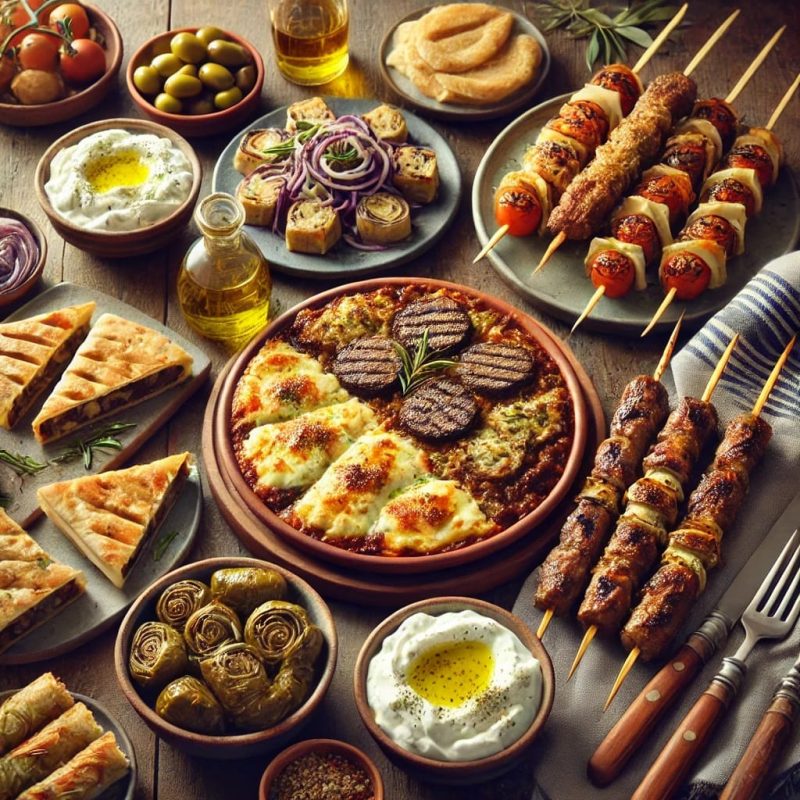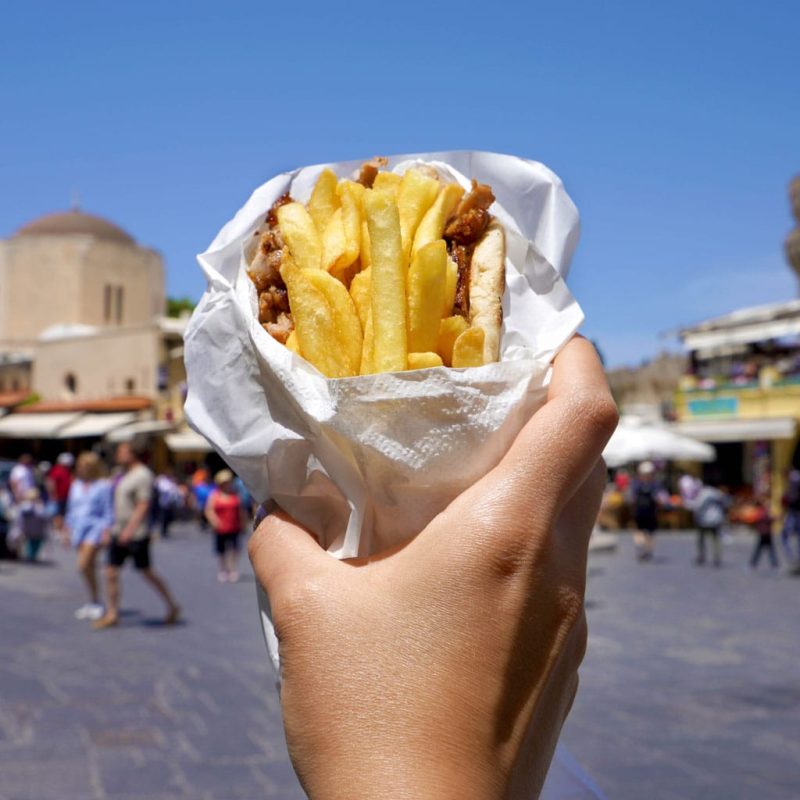Greek cuisine is a reflection of its rich history and diverse culture, offering a tantalising mix of flavours, aromas, and traditions.
Whether you’re dining in a bustling Athens taverna or enjoying a seaside meal on a tranquil island, Greek food is a feast for both the palate and the soul.
This page will introduce you to the essentials of Greek cuisine, the joy of eating in Greece, and how to navigate ordering in Greek restaurants.
Greek cuisine is a reflection of its rich history and diverse culture, offering a tantalising mix of flavours, aromas, and traditions.
Whether you’re dining in a bustling Athens taverna or enjoying a seaside meal on a tranquil island, Greek food is a feast for both the palate and the soul.
This page will introduce you to the essentials of Greek cuisine, the joy of eating in Greece, and how to navigate ordering in Greek restaurants.
Greek food is renowned for its simplicity and reliance on fresh, excellent quality ingredients.
The Mediterranean diet, to which Greek cuisine is central, is considered one of the healthiest in the world. It emphasises:
The Greek approach to food is communal and celebratory. Meals are often shared with family and friends, and dishes are brought to the table in large quantities for everyone to enjoy. Not forgetting the Ouzo!

When in Greece, these are some dishes you should not miss:

Dining in Greece is more than just eating; it’s an experience filled with tradition and hospitality. Here’s what to expect:

Ordering food in a Greek restaurant can be an adventure. Here are some tips to help you navigate the process:

To truly immerse yourself in Greek food culture, follow these local tips:

Greek cuisine is more than just food; it’s a way of life that reflects the country’s history, geography, and culture. Whether you’re sitting down for a formal meal or grabbing a quick snack, eating in Greece is an experience filled with joy, flavour, and tradition. Enjoy your culinary journey!

We are dedicated to showing you the best Athens has to offer in food amongst the quiet winding roads, bustling food and spice markets and introducing you to our friends who run family owned shops and traditional tavernas.

We are dedicated to showing you the best Athens has to offer in food amongst the quiet winding roads, bustling food and spice markets and introducing you to our friends who run family owned shops and traditional tavernas.
©2024 All Rights Reserved. Designed by the Design Agency